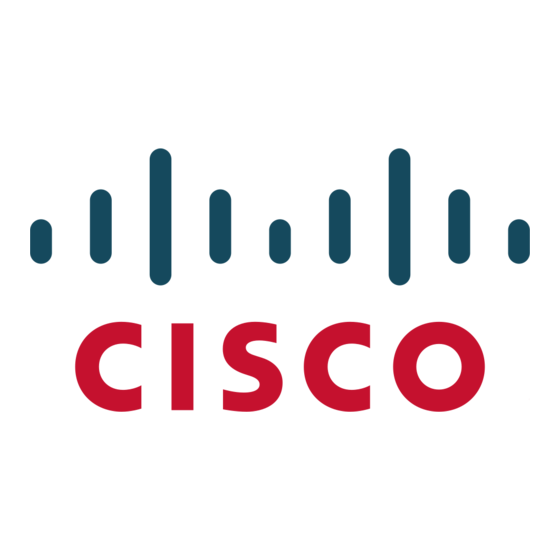Cisco 3550-12T - Catalyst Switch - Stackable Вопросы и ответы - Страница 3
Просмотреть онлайн или скачать pdf Вопросы и ответы для Переключатель Cisco 3550-12T - Catalyst Switch - Stackable. Cisco 3550-12T - Catalyst Switch - Stackable 9 страниц. Cisco catalyst 3550-48: supplementary guide

Q.
Can I enable static IP routing using the SMI?
A.
Yes, there is support for basic IP unicast routing via Static Routes and Routing Information Protocol (RIP) Versions 1 and
2 using the SMI. The EMI provides advanced IP unicast and multicast routing. These advanced routing protocols are
Open Shortest Path First (OSPF), Interior Gateway Routing Protocol (IGRP), Enhanced Interior Gateway Routing
Protocol (EIGRP), Border Gateway Protocol Version 4 (BGPv4), Protocol Independent Multicast (PIM), and PBR.
Q.
Is the EMI required to allow Layer 3 and Layer 4 lookups for QoS and security?
A.
No. Both the SMI and the EMI allow for Layer 3 and Layer 4 lookups for QoS and security.
Q.
Why do I need intelligence at the edge of my network?
A.
Networks today are evolving to address four new developments at the network edge:
Increase in desktop computing power
●
Introduction of bandwidth-intensive applications
●
Expansion of highly sensitive data on the network
●
Presence of multiple device types, such as IP phones and wireless LAN access points
●
These new demands are contending for resources with many existing mission-critical applications. As a result, IT
professionals must view the edge of the network as critical to effectively manage the delivery of information and
applications.
As companies increasingly rely on networks as the strategic business infrastructure, it is more important than ever to
ensure their high availability, security, scalability, and control. By adding Cisco intelligent functionality to the wiring closet,
customers can now deploy networkwide intelligent services that address these requirements in a consistent way from the
desktop to the core and through the WAN.
With Cisco Catalyst switches, Cisco helps companies to realize the full benefits of adding intelligent services into their
networks. Deploying capabilities that make the network infrastructure highly available to accommodate time-critical
needs, scalable to accommodate growth, secure enough to protect confidential information, and capable of differentiating
and controlling traffic flows is essential to further optimizing network operations.
Q.
Can you provide more details on how an intelligent switch from Cisco will help my network?
A.
New applications are requiring higher bandwidth and the need to differentiate and control the traffic flow. Applications
such as ERP (Oracle, SAP, etc.), voice (IP telephony traffic), video (videoconferencing or e-learning applications), and
CAD/CAM require prioritization over less time-sensitive applications such as FTP or e-mail (SMTP). It would be highly
undesirable to have a large file download destined to one port on a wiring closet switch and have quality implications
such as increased latency in voice traffic that is destined to another port on this switch. This condition is avoided by
ensuring that voice traffic is properly classified and prioritized throughout the network. Cisco switches implement superior
QoS to help ensure that network traffic is classified and prioritized, and congestion is avoided.
Q.
How does the Cisco Catalyst 3550 Series manage the security needs of a network?
A.
With the rise in internal threats to a network, Cisco switches enhance data security through a wide range of features
including Secure Shell (SSH) Protocol, Kerberos, Simple Network Management Protocol Version 3 (SNMPv3), ACLs,
802.1X, 802.1X with VLAN assignment, 802.1X with ACL assignment, 802.1X with voice VLAN, 802.1X with Port
Security, Port Security, Private VLAN Edge, Dynamic Host Configuration Protocol (DHCP) Interface Tracker, MAC
Address Notification, Switched Port Analyzer (SPAN) for Intrusion Detection System (IDS) support, and
RADIUS/TACACS+. Depending on your security needs, the Cisco Catalyst 3550 Series complements devices such as
firewalls, VPNs, and IDSs.
All contents are Copyright © 1992–2006 Cisco Systems, Inc. All rights reserved. This document is Cisco Public Information.
Page 3 of 9
